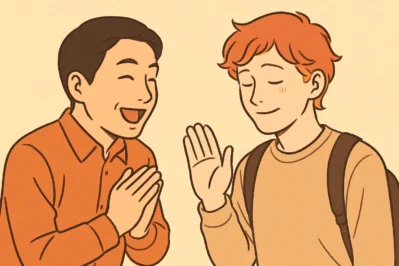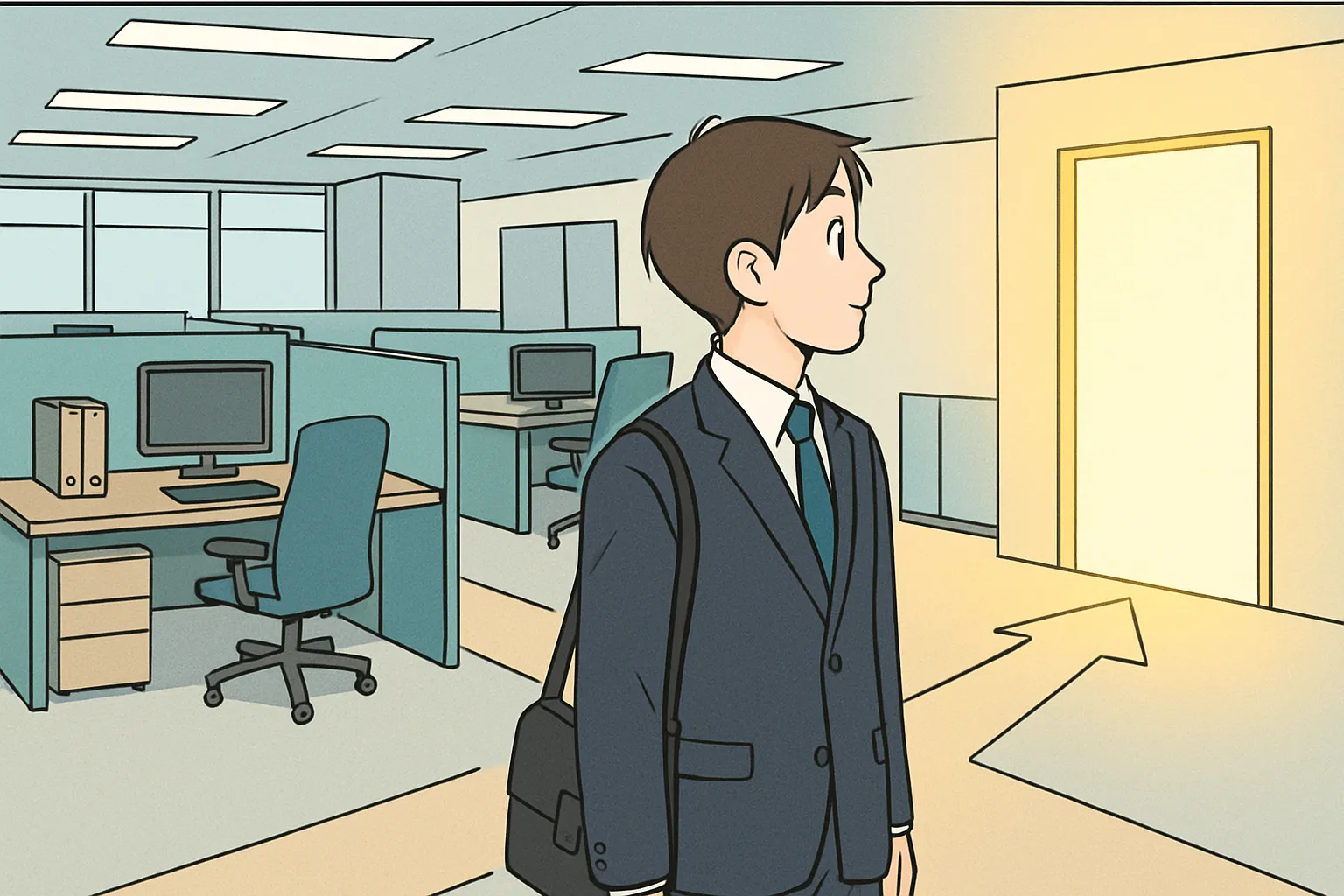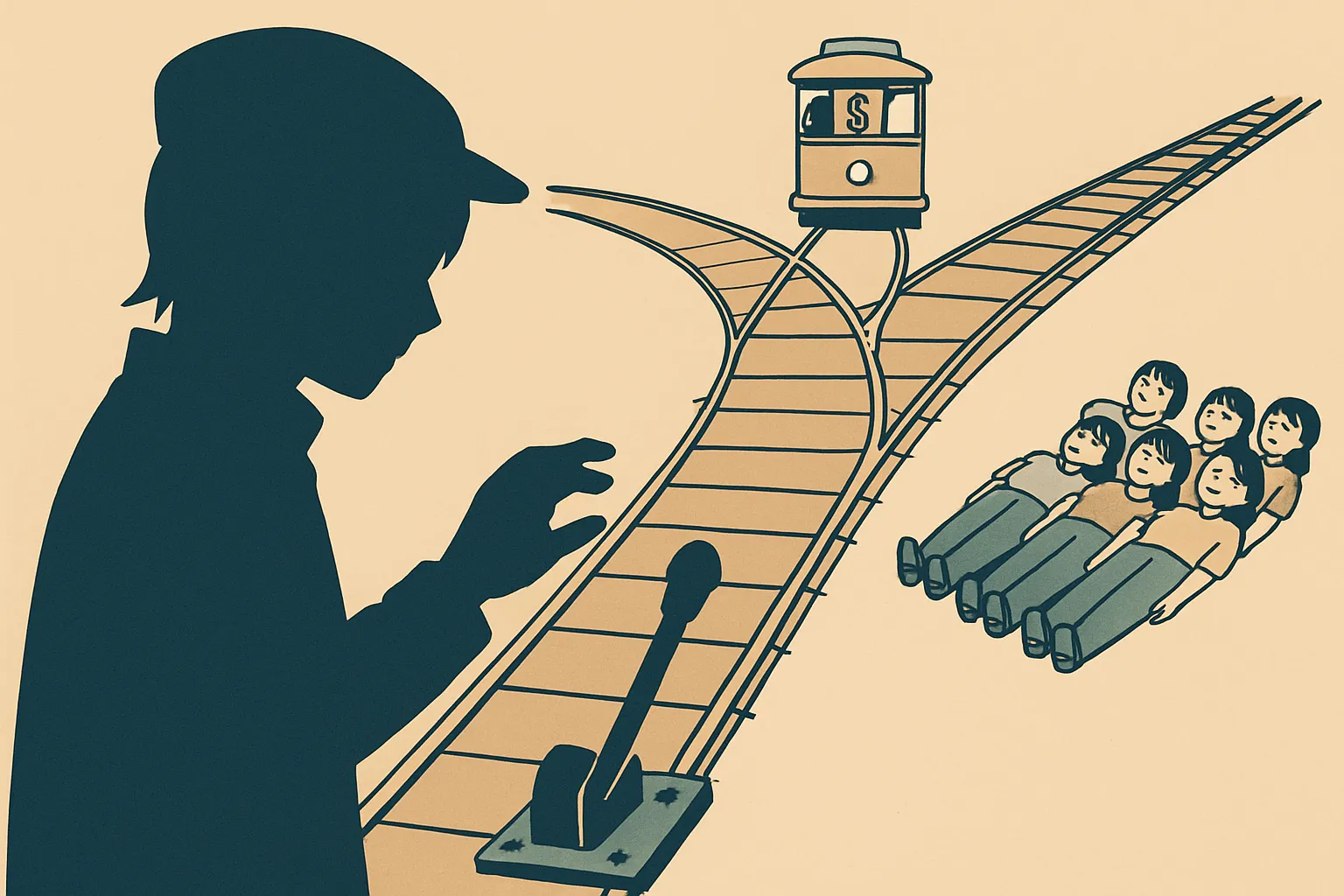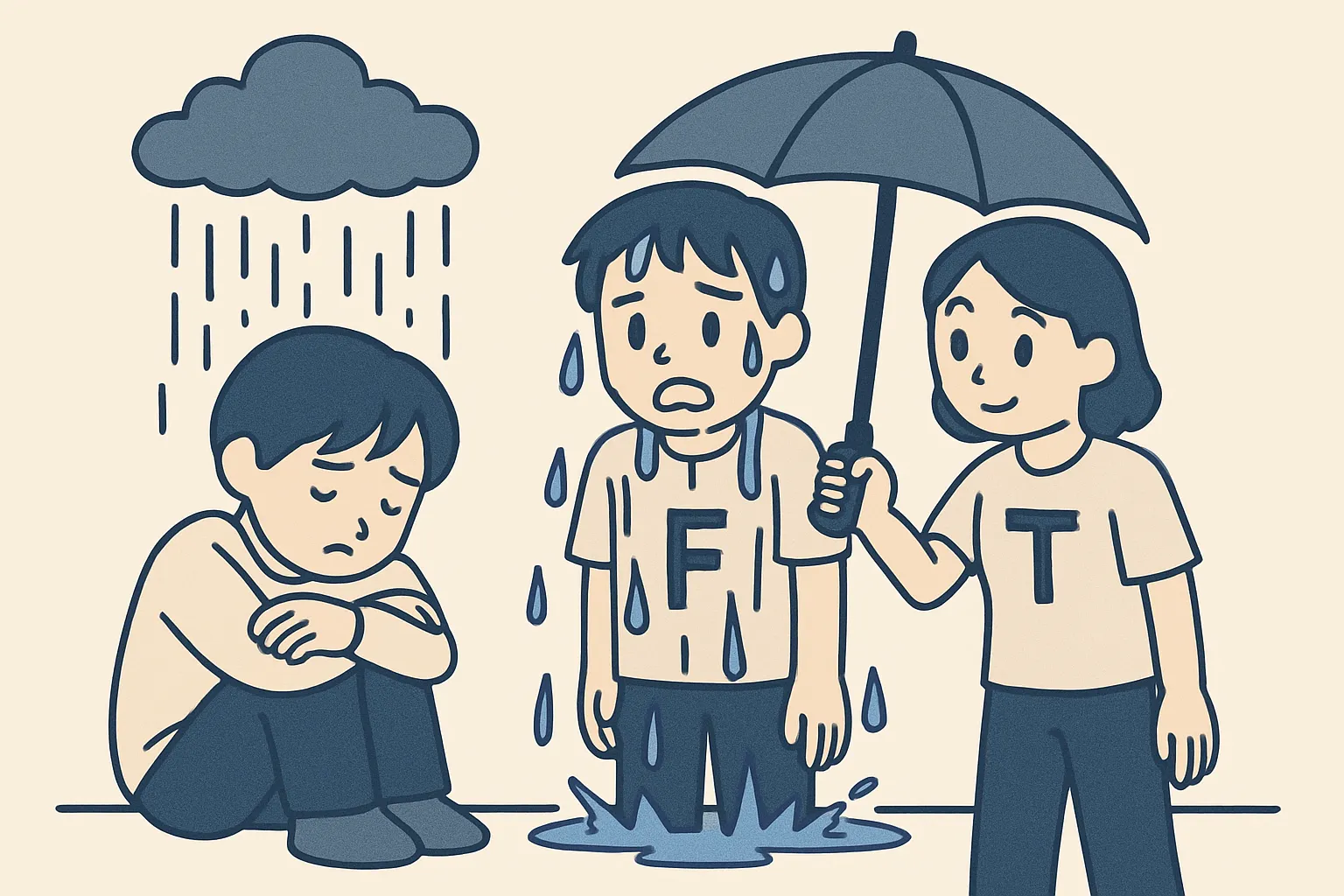“You’re So Good at Korean!” How to React to Compliments in Korea
Hello! This is [Maeil Hangeul], here to upgrade your Korean skills!
Have you ever been praised for your Korean and didn’t know how to respond beyond a simple “thank you”? Responding to compliments is a key social skill, and in Korea, there’s a special art to it. These days in Korea, if you watch popular K-dramas or see interviews with idols, you’ll notice they often humbly deny praise. Today, we’ll learn how to accept compliments gracefully and naturally, just like a native speaker!
Core Expressions You Need to Know
Here are three essential phrases for when someone says something nice about you.
1. 아니에요 (Anieyo)
* Pronunciation [Romanization]: A-ni-e-yo
* English Meaning: “No, it’s not” / “Not at all.”
* Detailed Explanation: This is the most common and important response to a compliment in Korea! While it might sound negative in English, in Korean, it’s a very polite and humble way to show you’re not arrogant. You’re not actually disagreeing with the person, but rather expressing modesty. It’s perfect for both casual and formal situations.
2. 과찬이세요 (Gwachaniseyo)
* Pronunciation [Romanization]: Gwa-chan-i-se-yo
* English Meaning: “That’s too much praise” / “You’re flattering me.”
* Detailed Explanation: This is a slightly more formal and sophisticated expression. It comes from the word ‘과찬’ (gwachan), which means excessive praise. Use this when you receive a very generous compliment, especially from someone older or in a professional setting. It makes you sound very humble and respectful.
3. 아직 멀었어요 (Ajik meoreosseoyo)
* Pronunciation [Romanization]: A-jik meo-reo-sseo-yo
* English Meaning: “I still have a long way to go.”
* Detailed Explanation: This is the perfect phrase to use when someone compliments your skills, like your Korean language ability, your cooking, or your piano playing. It shows that you are dedicated to improving and not yet satisfied with your current level. It’s a very admirable and common sentiment in Korean culture.
Example Dialogue
Let’s see how these expressions are used in a real conversation. Two friends, A (Somi) and B (Brian), are talking after watching the latest episode of the hit K-drama, “The Idol’s Secret.”
A (Somi): 와, 브라이언! 자막 없이 드라마를 봐요? 한국어 실력이 정말 짱이다! (Wow, Brian! You’re watching the drama without subtitles? Your Korean skill is awesome!)
B (Brian): 하하, 아니에요. 아직 멀었어요. 모르는 단어가 너무 많아요. (Haha, not at all. I still have a long way to go. There are so many words I don’t know.)
A (Somi): 정말요? 발음이 거의 한국 사람 같은데요. (Really? Your pronunciation is almost like a Korean person’s.)
B (Brian): 과찬이세요. 좋게 들어줘서 고마워요! (You’re flattering me. Thanks for saying so!)
Culture Tip & Trend Deep Dive
Why do Koreans deny compliments?
In the popular drama “The Idol’s Secret,” you might have noticed the main character, played by star idol Cha Eun-woo, always says “아니에요” whenever his producer praises his performance. This isn’t a sign of low self-esteem; it’s a cultural sign of humility (겸손 – gyeomson).
In Korean culture, directly accepting a compliment with a simple “Thank you” can sometimes be seen as a bit boastful. By gently denying it with phrases like 아니에요 or 아직 멀었어요, you are showing respect to the person who gave the compliment and presenting yourself as a modest, hardworking individual.
Pro Tip: A great formula for beginners is [Humble Phrase] + 감사합니다 (Gamsahamnida). For example: “아니에요. 칭찬해 주셔서 감사합니다!” (Not at all. Thank you for the compliment!). This way, you show both humility and gratitude.
Let’s Practice!
Time to review what we’ve learned!
- Fill in the Blank: Your Korean friend tastes your homemade kimchi and says, “와, 이거 정말 맛있다! (Wow, this is delicious!)” You want to humbly say, “You’re flattering me. Thank you!”
“____________. 고마워요!”
- Make a Sentence: Your teacher praises your Korean writing skills. How would you say, “Not at all. I still have a long way to go”?
Great job today! You’re now ready to handle compliments like a true local.
Leave a comment below using one of the expressions we learned today! We’d love to praise your Korean skills!






